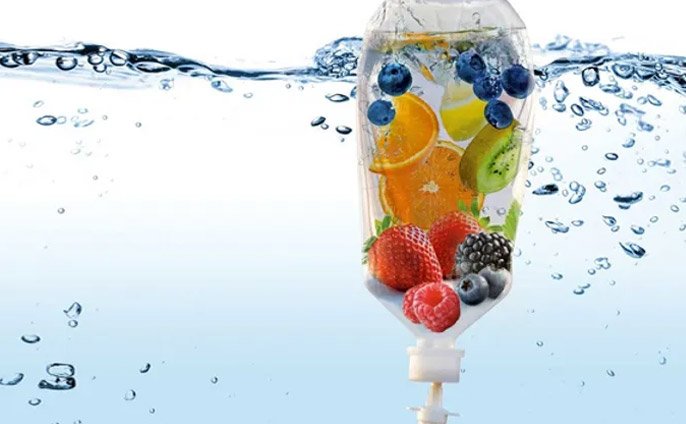Intravenous (IV) drip therapy has gained significant popularity as a method to quickly deliver fluids, nutrients, and medications directly into the bloodstream. Its convenience and rapid effectiveness make it a preferred choice for many individuals seeking hydration, detoxification, or nutrient replenishment. However, when it comes to pregnancy, the safety of IV drip therapy becomes a vital concern for expectant mothers.
Pregnancy is a delicate condition requiring careful consideration of any medical or wellness procedure. Many women wonder whether undergoing IV drip therapy is safe during this critical period. The focus here is to provide comprehensive insights into the safety, benefits, and precautions related to IV Drip Abu Dhabi or similar therapies during pregnancy.
Understanding IV Drip Therapy in the Context of Pregnancy
What Is IV Drip Therapy?
IV drip therapy involves administering fluids, electrolytes, vitamins, and other nutrients directly into the bloodstream through a vein. The method ensures rapid absorption and is often tailored to meet specific health or wellness goals. It can be used to address dehydration, nutrient deficiencies, or to boost immunity.
Why Pregnant Women Consider IV Therapy
Pregnant women may opt for IV therapy to combat morning sickness, dehydration, or nutritional deficiencies that can affect both mother and baby. The therapy offers a quick and effective method to replenish essential nutrients and fluids that may be difficult to intake solely through diet.
Types of IV Drips Suitable During Pregnancy
Certain formulations are designed specifically for pregnant women, focusing on essential nutrients like folic acid, iron, and vitamins. These are typically customized to support maternal health and fetal development, ensuring safety and efficacy.
Assessing the Safety of IV Drip Therapy During Pregnancy
Medical Supervision Is Crucial
The safety of IV drip therapy during pregnancy hinges on professional medical supervision. Qualified healthcare providers evaluate the individual needs of the patient, ensuring that the therapy is appropriate for her pregnancy stage and health status.
Composition of the IV Drip
The formulation of the IV drip is vital. It should contain only safe, pregnancy-approved ingredients tailored to the patient’s nutritional requirements. Unnecessary additives or unapproved substances can pose risks and should be avoided.
Timing and Frequency of Treatment
The timing within pregnancy and the frequency of IV therapy sessions are important considerations. Usually, medical professionals recommend limiting treatments to necessary instances, avoiding unnecessary or excessive interventions.
Potential Benefits During Pregnancy
When administered appropriately, IV drip can help alleviate symptoms like dehydration, fatigue, and nutritional deficiencies. It may contribute to overall well-being, supporting a healthy pregnancy.
Precautions and Considerations for Expectant Mothers
Consultation with Healthcare Providers
Before opting for IV drip therapy, pregnant women should consult their healthcare provider. A thorough assessment ensures that the therapy aligns with their health condition and pregnancy progress.
Avoiding Self-Medication
Self-administering IV therapy without professional guidance can be dangerous. It’s essential to have the procedure conducted by trained medical personnel in a sterile environment to prevent infections or other complications.
Monitoring and Follow-up
Continuous monitoring during and after IV therapy sessions helps detect any adverse reactions early. Follow-up consultations ensure that the treatment remains safe and effective throughout pregnancy.
Recognizing When to Avoid IV Therapy
Certain conditions or pregnancy complications may contraindicate IV therapy. Women should be vigilant and seek medical advice if they experience symptoms like allergic reactions, unusual discomfort, or other concerning signs.
Benefits of IV Drip Therapy During Pregnancy
Quick Replenishment of Nutrients
IV therapy offers immediate delivery of essential nutrients, which can be particularly beneficial during times of nausea or vomiting, common in pregnancy.
Hydration and Electrolyte Balance
Maintaining hydration is crucial during pregnancy. IV drips can effectively restore fluid balance, especially in cases of dehydration caused by morning sickness.
Enhanced Energy and Reduced Fatigue
Proper nutrient supplementation can help improve energy levels, reducing fatigue and supporting daily activities during pregnancy.
Support for Fetal Development
Adequate maternal nutrition directly influences fetal growth. IV therapy can assist in ensuring that both mother and baby receive vital nutrients.
Alternatives and Complementary Approaches
Dietary Improvements
A balanced diet rich in vitamins, minerals, and fluids remains the foundation for prenatal health. Nutritional counseling can optimize dietary intake to meet pregnancy needs.
Oral Supplements
Prenatal vitamins and targeted supplements are standard methods to address deficiencies. They are generally safe and effective when taken as advised by a healthcare provider.
Hydration Strategies
Regular fluid intake, including water, herbal teas, and nutritious broths, can maintain hydration levels naturally.
Lifestyle Adjustments
Adequate rest, moderate exercise, and stress management contribute significantly to overall well-being during pregnancy.
Final Thoughts on Safety and Effectiveness
While IV drip therapy can offer benefits during pregnancy when properly managed, it is not a universal solution. Its safety depends heavily on individual health status, pregnancy stage, and the expertise of the administering professionals. Pregnant women should prioritize consultation with their healthcare providers to determine whether IV therapy aligns with their health needs and to ensure that it is performed in a safe, sterile environment.
Ultimately, maintaining a balanced diet, staying hydrated, and following medical advice form the cornerstone of a healthy pregnancy. IV drip may serve as an adjunct in specific situations, but it should always be approached with caution and under professional supervision.
FAQs About IV Drip Therapy During Pregnancy
1. Is IV drip therapy safe during all stages of pregnancy?
IV drip therapy can be safe during pregnancy when administered under medical supervision and with formulations tailored to maternal and fetal needs. The safety may vary depending on individual health conditions and pregnancy stages.
2. Can IV drip therapy replace prenatal vitamins?
No, IV drip therapy is not intended to replace prenatal vitamins. It can complement a healthy diet and prenatal supplements but should not be considered a substitute without medical advice.
3. How often can pregnant women undergo IV drip therapy?
The frequency of IV therapy during pregnancy depends on individual health assessments. It is typically recommended only when necessary and under the guidance of a healthcare provider.
4. Are there any side effects of IV drip therapy during pregnancy?
When properly administered, side effects are minimal. However, potential risks include allergic reactions, infections, or discomfort at the injection site. Proper medical supervision minimizes these risks.
















Leave a Reply